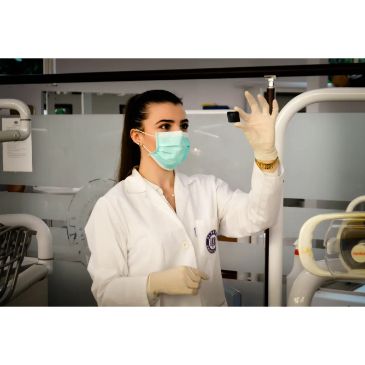In today’s criminal cases, prosecutors and the courts rely heavily on forensic testing in order to prove a case. Use of lab testing is seen as an objective alternative to other types of evidence, such as eyewitness testimony, which have been proven to be unreliable.
However, a recent study found that forensic chemists’ handling of illegal drugs can cause detectable levels of drugs in the lab environment.
This is a significant problem because when chemists test samples for illegal drugs, they need to be certain that the traces of illegal drugs they find are coming from the sample in question. “If I run a sample and it has fentanyl, I want to be sure that fentanyl came from the sample and not background levels in my lab,” explained a researcher from the National Institute of Standards and Technology, quoted in the news release.
How Are Trace Chemicals Tainting Test Results?
 When chemists handle evidence that contains illegal drugs, trace amounts of those drugs are released into the laboratory environment. Microscopic particles from the drug can become airborne and settle on nearby surfaces. Particles can also be spread by touch. If enough of these particles are transferred to the lab environment, there can be detectable levels of drugs in the lab.
When chemists handle evidence that contains illegal drugs, trace amounts of those drugs are released into the laboratory environment. Microscopic particles from the drug can become airborne and settle on nearby surfaces. Particles can also be spread by touch. If enough of these particles are transferred to the lab environment, there can be detectable levels of drugs in the lab.
Detectable levels of drugs in the lab means that when fresh evidence is being tested for illegal drug levels, the drugs in the lab environment may appear on the test results. This would make it appear that the sample tested was positive for illegal drugs, when in reality, it was simply contaminated by background levels of the drug in the laboratory.
While it is impossible to completely eliminate background levels of drugs, it is the forensic lab’s responsibility to ensure that the levels are low enough to not affect the test results. Best practices recommend regular cleaning of surfaces to remove drug residues. Labs should take note of surfaces that often harbor more residue than others. For example, the balance that chemists use to weigh evidence can contain up to 10 times more drug residue than other surfaces (Science Daily).
Other Ways Test Results Can Be Tainted
In 2013, it was revealed that Massachusetts state drug lab chemist Annie Dookhan did not actually test all the drugs that came before her, forged her coworkers’ initials, and mixed drug samples so that her shoddy analysis matched the results she gave state prosecutors in relation to drug cases.
This discovery, plus the legal work of many attorneys, led to 21,587 dismissed drug cases that were tainted by Dookhan’s misconduct. The American Civil Liberties Union in Massachusetts called it the largest dismissal of convictions in U.S. history. The dismissals allowed tens of thousands of people who were convicted based on fabricated evidence to have their records cleared (Washington Post).
In our previous blog, The Bussey Law Firm, P.C., covered other crime lab scandals, both in Colorado and the United States as a whole.
In addition to being tainted by misconduct, drug samples have the potential for contamination when they come into contact with other samples in the evidence “sign in” area of laboratory facilities, while evidence is waiting to be tested in the temporary storage vault, and while evidence is being transported for additional handling. It is the laboratory’s responsibility to ensure that decontamination of these areas is done on a repeated basis (Crime Scene Investigator Network).
Getting Evidence Thrown Out of Court
If there is any indication that a drug sample may be tainted, a knowledgeable criminal defense attorney will work to get the evidence thrown out of court in a motion to suppress evidence. Evidence can generally be excluded if it is proven to be unreliable, prejudicial, not authentic, or where its admission would violate a public policy.
In the case of contaminated or mishandled drug test results, a criminal defense attorney could make the case for inauthentic evidence. Once this is established, the attorney would submit a motion to suppress evidence to the court. This document outlines the defendant’s charge, the explanation for why the evidence is inauthentic, and requests that the evidence be thrown out of court. If the lawyer suspects chemist misconduct, the Supreme Court of the United States ruled in Melendez-Diaz v. Massachusetts that chemists who perform drug tests in criminal cases can be subpoenaed to testify in person.
Work with an Experienced Colorado Drug Crime Attorney
No one deserves a criminal sentence due to trace levels of background drugs in the prosecutor’s evidence. If you have been charged with a drug crime and feel that lab results may be inaccurate, The Bussey Law Firm, P.C., can ensure that your case receives fair and accurate testing. Timothy R. Bussey maintains the ACS Forensic Lawyer-Scientist Designation in the state of Colorado, as well as certification in Forensic Chromatography.
The Bussey Law Firm, P.C. won’t accept anything less than the best possible outcome for your case. To discuss your situation with one of our Colorado Springs drug crime attorneys, give us a call at (719) 475-2555.
